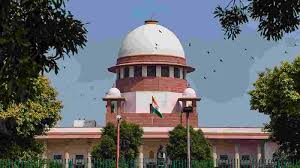NEW DELHI: Noting that there was a difference between hate speeches and wrong assertions, the Supreme Court on Tuesday refused to entertain a PIL seeking directions to curb inflammatory speeches by public figures which allegedly endangered national unity, security and promoted divisive ideologies.
“We are not inclined to entertain the present writ petition under Article 32 of the Constitution, which in fact refers to alleged references. Further, there is a difference between hate speech and wrong assertions… In case the petitioner has any grievance, they may raise the same in accordance with law,” a Bench of Chief Justice of India Sanjiv Khanna and Justice Sanjay Kumar told a lawyer representing petitioner Hindu Sena Samiti.
Citing certain comments made by former Madhya Pradesh Minister Sajjan Singh Verma and Bharatiya Kisan Union spokesperson Rakesh Tikait, petitioner’s counsel Kunwar Aditya Singh and Swatantra Rai alleged political leaders’ comments often had the tendency to trigger public unrest.
Verma had allegedly warned of a potential popular uprising, drawing comparisons to the protests in Sri Lanka and Bangladesh, while Tikait allegedly referenced the farmers’ protests, suggesting the possibility of a violent insurrection.
The petitioner alleged the government had been inconsistent in checking inflammatory speeches. However, without making any observations on the merits of the case, the Bench said it was not inclined to issue notice on the PIL which sought guidelines to prevent provocative rhetoric and penal action against those making statements that could jeopardise public order and India’s sovereignty.


